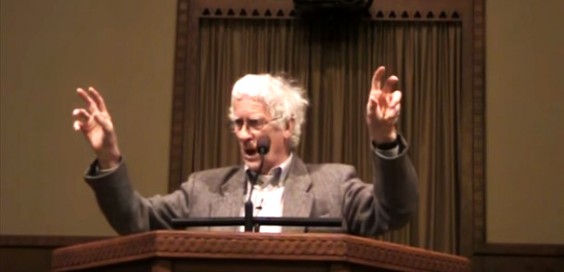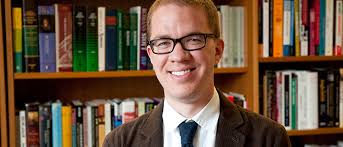 A few weeks ago Nicholas Wolterstorff, a renowned Christian philosopher, publicly affirmed same-sex marriage in an address delivered at a Christian Reformed Church. According to a report of the lecture, Wolterstorff approached his subject by recounting how his own mind had changed:
A few weeks ago Nicholas Wolterstorff, a renowned Christian philosopher, publicly affirmed same-sex marriage in an address delivered at a Christian Reformed Church. According to a report of the lecture, Wolterstorff approached his subject by recounting how his own mind had changed:
Wolterstorff opened by acknowledging that he is not an authority on the matter, and as such, would present a narrative of his own journey to an affirming stance on same-sex marriage in the church.
It was through relatives, students and former students who were gay, as well as people in committed, same-sex relationships, that Wolterstorff was drawn to more closely consider the traditional views he’d grown up believing.
“I’ve listened to these people. To their agony. To their feelings of exclusion and oppression. To their longings. To their expressions of love. To their commitments. To their faith. So listening has changed me.”
Many Christians will resonate with Wolterstorff’s experience: they, too, have known and loved gay people, heard their stories, shared something of their struggles and longings, and hoped for something different. Still, as I read the account of his lecture, I was not convinced that Wolterstorff was dealing faithfully with the biblical texts he was citing—somewhat surprising for a Reformed Christian.
 Then tonight, as I was preparing to post a short piece on this lecture, I came across a response to Wolterstorff’s lecture by Wesley Hill—who identifies as Christian, gay and celibate. Hill, author of Washed and Waiting and Spiritual Friendship, accused Wolterstorff of lacking hermeneutical charity, of taking cheap shots, and so of writing a shallow lecture. Hill writes,
Then tonight, as I was preparing to post a short piece on this lecture, I came across a response to Wolterstorff’s lecture by Wesley Hill—who identifies as Christian, gay and celibate. Hill, author of Washed and Waiting and Spiritual Friendship, accused Wolterstorff of lacking hermeneutical charity, of taking cheap shots, and so of writing a shallow lecture. Hill writes,
Clearly, there exists in the church today the possibility of genuine, reasoned, substantive debate over the rightness of same-sex marriage. Some of the most humane and beautiful Christian writing I’ve read in recent years has come from same-sex-marriage advocates like the Episcopalian Eugene Rogers and the British feminist theologian Sarah Coakley. And that’s why Wolterstorff’s lecture is particularly dismaying: By firing cheap shots and caricaturing the traditional views he hopes to overturn, he hampers a debate whose depth and maturity could be further deepened.
The two papers are worth reading, not simply to engage the topic which occasioned the lecture and its response, but more importantly, to think about what it means to read Scripture and to practise theology.